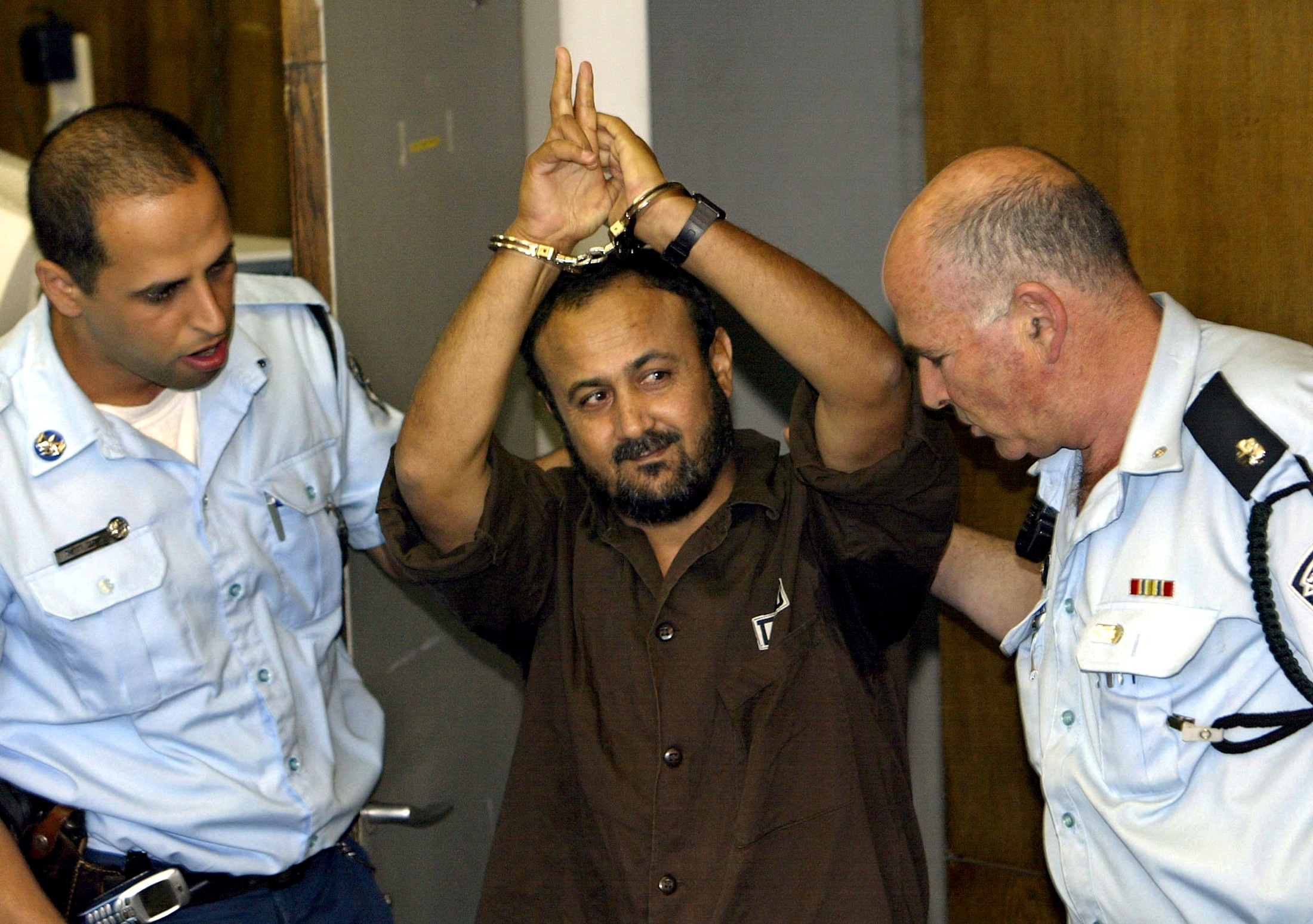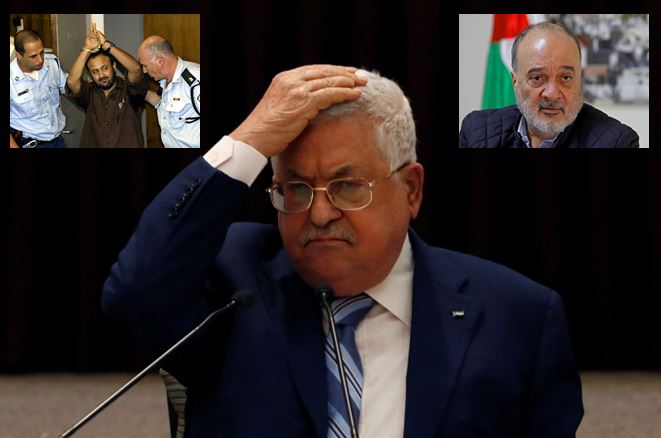Publications
INSS Insight No. 1456, April 25, 2021
Efforts by Abu Mazen and senior Fatah leaders to prevent divisions in the movement before the May 2021 Palestinian Legislative Council elections have failed. The movement split into three separate lists following multiple disputes, power struggles, and anger directed at the leadership. These splits challenge the status of Abu Mazen, who over the past 16 years was the sole, unchallenged leader of the Palestinian national movement. They cast a shadow over Fatah’s hegemony in the Palestinian theater, accelerate the inheritance wars, undermine security instability in the West Bank, and bolster the status of Hamas as an alternative to the Fatah movement. These developments are liable to lead Israel to increase its intervention in the Palestinian territories, which could lead in turn to a major increase in friction with the local population and growing tension between Israel and Arab countries. This could have a negative impact on efforts to move the Abraham Accords forward.
The decision by Abu Mazen to hold elections has proven to be a dangerous gamble. The Palestinian President assumed that the setbacks to the Palestinians in recent years at the hands of the Trump administration, the threat of Israeli annexation of parts of the West Bank, and the normalization of relations between Israel and Arab countries would unite the Palestinian people and postpone the internal crises in the Fatah movement for the rest of his term in office. The leaders of Fatah and Hamas even tried to form a joint list in the elections. Abu Mazen's decision to hold elections was also influenced by pressure exerted by the European Union and the donor countries, and by the change in United States administrations. He believed that this decision would draw him closer to the Biden administration and help restore relations to what they were before the Trump presidency.
The idea of running with Hamas on a joint list, however, was severely criticized in both organizations, and was abandoned. Following a short crisis in the internal elections for chairman of Hamas in the Gaza Strip, Hamas succeeded in unifying its ranks and presenting itself to the voters as a single entity. Fatah, however, is a different story, with its blatant internal rifts. Abu Mazen, who has been an object of severe criticism among the general public and in Fatah for the past seven years, took a series of actions that greatly strengthened his control of the organization, the Palestinian Authority, and the PLO. These actions dealt a severe blow to the status of key figures in the organization, among them associates of Marwan Barghouti, regarded as a symbol; his wife, Fadwa; and Nabil Amr, who was his advisor. Due to the growing anxiety among Abu Mazen and his close associates about disloyalty, PA affairs are conducted by an exclusive and closed band of loyalists, thereby arousing antagonism among Fatah activists and the public. Abu Mazen himself is perceived as someone who has forgotten the national interest, is concentrating on his own survival, and is acting like a monarch who sets the Palestinian agenda by himself.
Abu Mazen's traditional policy advocated security cooperation with Israel and political negotiations while continuing a diplomatic, legal, and international struggle to recruit support for the Palestinian issue and increase the pressure on Israel. This distinguished him from his predecessor, Yasir Arafat, and earned him strong support in the 2005 Palestinian presidential elections. The outset of his presidency was accompanied by much optimism because of his constructive actions vis-à-vis Israel, and because of the effort made by the Palestinian governments during those years in what was perceived to be nation building processes: forming institutions, reforming security agencies and the legal system, and building welfare and economic infrastructure that provided, and still provide, jobs for many people. This policy, however, failed to achieve its goals. Furthermore, PA activity in recent years was marked by growing corruption. As a result, there were mounting calls for a change of government, instead of a demand for changes and reform, as in the past. Such criticism was voiced by Abu Mazen's rivals, including Nasser al-Qudwa, supporters of Mohammad Dahlan, and many others.
At the same time, Abu Mazen's critics in Fatah still regard the organization as a political home, even after they set up a separate list in the elections, and even after being expelled from Fatah, as was Dahlan's group. This pattern reflects the special character of Fatah, in contrast to the other Palestinian factions. Fatah is in effect a national movement that made Palestine and Palestinians its leading priority; unlike other Palestinian organizations, it did not adopt a universalist ideology. Consequently, Fatah became the largest Palestinian organization, encompassing people with diverse and even clashing opinions, with the differences being contained through internal dialogue, and has survived numerous disputes and rifts since it was founded in 1958. Until the appearance of Hamas in 1987, Fatah had no real rival. The victory of Hamas in the 2006 elections to the Palestinian Legislative Council was achieved primarily because of the regional election system in effect at the time, not because it received more votes.
The separate list of Barghouti and al-Qudwa is an upset for Fatah. Barghouti's secession adds a new aspect in comparison with the 2006 elections, when the separate lists at the time were not led by prominent figures as Barghouti, Dahlan, and al-Qudwa. Barghouti, who is aware of this difficulty, is claiming that he did not leave Fatah, and believes that eliminating the regional election system will help Fatah benefit from its entire electorate, so that the separate lists will not result in a loss of power. For his part, al-Qudwa held that anyone identified with the national movement has a problem with political Islam. This means that following the elections, there will be no parliamentary alliances with Hamas's representatives, and it will be possible to reunite all of the Fatah lists into a single body. The attempts by Barghouti and al-Qudwa to make light of the separate list, however, do not alleviate the depth of the historic crisis that has afflicted Fatah since the elections were announced.
Fatah now needs not only new leadership, but also a new policy and an increase in its attractiveness to young people, university graduates, and the unemployed, who have no personal or national horizon. Fatah is no longer a movement focusing solely on ending the occupation; it is a body bearing a responsibility similar to that of a country. As such, it must care for the public's general needs. The same is true of Hamas, which is now aware of its civil responsibility. These developments are another stage in Palestinian political growth; the elections scheduled for the coming months are only part of the process.
At the same time, it is doubtful whether it is possible to speak of Fatah's loss of hegemony or its arrival at the end of the road. For many, the organization is still their political home. (Despite its growing strength, support for Hamas is also waning, mainly in the Gaza Strip. It has difficulty convincing people of the achievements of the armed resistance, and searches for ways to conduct an unarmed struggle against Israel. Like other Muslim Brotherhood groups in the Arab world, it is the subject of intense suspicion.) Indeed, Abu Mazen's associates softened their criticism of Barghouti and al-Qudwa upon their submission of their list to the election committee. In contrast to al-Qudwa, Barghouti was not expelled from Fatah. Two of his closest friends do not appear on his list. One of them, Qadura Fares, appears on the official Fatah list, while the other, East Jerusalemite Hatem Abdel al-Qader, has in recent weeks stated frequently in Barghouti's name that he is planning to run for president, not on a separate list for the Legislative Council.
It therefore appears likely that the elections will not be canceled or postponed, as seemed quite probable before the lists of candidates were submitted. Election fever is prevalent, and most of the public has expressed its desire to participate in them (possibly influenced by the frequent elections in Israel). This in turn raises expectations for renewal following the elections. A decision to cancel or postpone the elections will subject Abu Mazen and Fatah to the ridicule of their political rivals and the general public, and cast them as weak and afraid of the election results.

Israel, who some Palestinians hope will block the elections, will be unable to take responsibility for preventing them. It can block East Jerusalem residents from participating in them on the grounds that in violation of the Oslo Accords, these elections were defined in the presidential order announcing them as elections to institutions of the State of Palestine, rather than PA institutions, as stipulated in the interim arrangements, and as was the case in 2006. Such a measure is liable, however, to be interpreted as intervention aimed at preventing a democratic proceeding. Furthermore, Abu Mazen strongly rejected a recommendation by the heads of the Israeli Ministry of Defense to postpone the elections because of the risks they incur. He is angry about what he calls the many violations in recent years committed by Israel in Area C, and about the flow of money from Qatar to the Gaza Strip. In addition, Abu Mazen has lost confidence in the ability or inclination of the US administrations, including the Biden administration, to exert pressure on Israeli governments to refrain from establishing facts in Area C, which threatens to put an end to a two-state solution.
A victory by Hamas in the elections, or even a substantial increase in its strength, as well as destabilization of the PA followed by a decline in its ability to function, counter Israel's interests. Whether the current Israeli government prefers the status quo to progress in the political process with the Palestinians or whether a new government prefers to renew the process, a stable, strong, and functioning PA led by the Palestinian national movement is better for Israel than the strengthening of Hamas. On the other hand, Israel cannot intervene in the election process and/or act to prevent it.
In order to reduce the possible damage to its interests, however, Israel can, in coordination with the United States, European countries, Jordan, Egypt, and the Gulf states, attempt to influence the direction in which Abu Mazen navigates the ship. The possibility of reuniting the seceding lists with the Fatah list no longer exists, but it is still possible for the Barghouti list to be withdrawn by April 29 if its demands for preserving its power bases and influence in Fatah are granted. At the same time, Israel should ask all the parties in the United States, the inter-Arab theater, and the international theater, whose foreign policy includes promoting the political process, to make clear to Abu Mazen and the Palestinian public the severely negative consequences that a Hamas victory in the elections will have on the daily lives of the residents in the Gaza Strip. These include a halt in the security coordination between Israel and the PA forces, the imposition of restrictions on freedom of movement and labor, and a major decline in the PA's international and Arab legitimacy.



